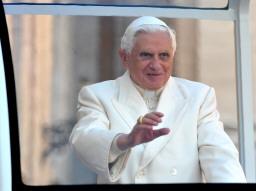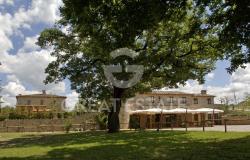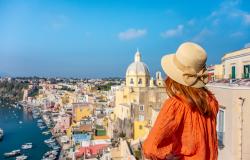Vatican and Israeli officials on Thursday confirmed that Pope Benedict XVI may visit the Holy Land in 2009 despite recent differences between the two states.
Vatican spokesman Father Federico Lombardi said such a possibility was ''being examined'' in response to a report in Thursday's edition of the Israeli daily Haaretz which said that the pope would visit sometime in May.
Benedict was hoping to make the announcement at Christmas but the leak in the Israeli paper pre-empted this, Vatican sources said.
Israeli Ambassador to the Vatican, Mordechay Lewy, said the visit was ''very probable''.
''We're working hard on it,'' he said. ''A visit by the pope to the Holy Land would have incomparable historic value and he himself has already announced his desire to go there,'' Lewy added.
The ambassador admitted that there were ''certainly differences of opinion'' between the Vatican and the Israeli authorities, but that these did not constitute an obstacle to the pontiff's visit.
One of the main causes of contention between the two states centres around wartime pope Pius XII, who many Jews have criticised for failing to speak out against the Nazi genocide.
In October Israeli Social Affairs Minister Yitzhak Herzog created friction with the Vatican after stating publicly that plans to beatify Pius XII - a step before sainthood - were ''unacceptable''.
The Vatican's line on the wartime pope is that he saved more Jews by remaining silent, since if he had spoken out this could have prompted a Nazi backlash.
Prominent Jews including late premier Golda Meir have also spoken in support of Pius XII.
Benedict has so far failed to sign a decree to beatify the wartime pope - a move that some Vatican observers see as an attempt to put the issue out of the spotlight so that he can make the long-desired visit to the Holy Land.
Lombardi said recently that a photo of Pius XII in Jerusalem's Holocaust Museum, captioned with a condemnation of the Pope's silence on the Nazi genocide, was a ''relevant'' but not ''determining'' factor in negotiations for the pope's visit.
Lewy said Thursday it was too early to say whether Benedict would visit the museum, adding that ''dates and details have not been fixed''.
OTHER UNRESOLVED DIFFERENCES.
Israel and the Holy See, which only forged full diplomatic relations in 1993, have been trying ever since to resolve a series of complicated questions which continue to cause tensions.
Among these are the Vatican's request that custody of certain symbolic cites in Israel - such as the room of the Last Supper and an ancient church in Caesaria connected to St Peter - be returned to the Catholic Church.
There are also longstanding disagreements on tax and judicial matters, including a tax exemption that the Church wants for its property in Israel.
Another issue is how to deal with cases of Catholic properties which have ended up in Israeli hands and which the Vatican wants dealt with in local courts.
But under Israeli law such issues must be resolved on a political level.
Disagreements between the two states did not stop Benedict's predecessor, John Paul II, from making a historic trip to Israel in 2000, when he fulfilled a lifelong dream to tour the Holy Land and walk in the steps of Jesus.
Before Israel was officially recognised as a country by the Vatican, Pope Paul VI also made a flying visit there in 1964 but avoided sites of Jewish significance.










